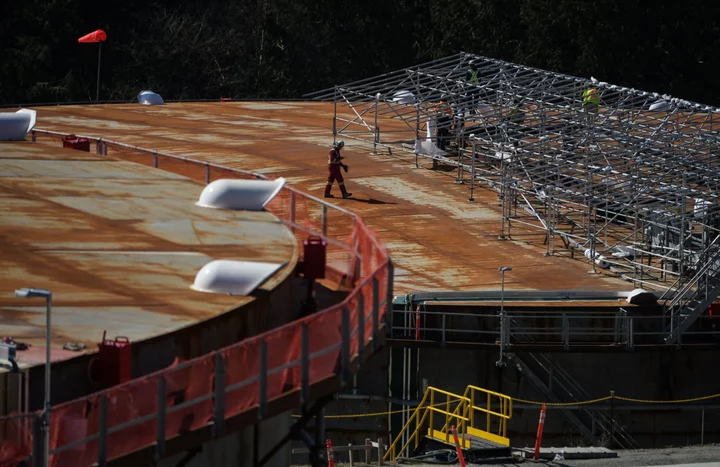A law passed by Prime Minister Justin Trudeau’s government to review major resource and infrastructure projects was largely struck down by Canada’s top court, which ruled it intrudes on the rights of provinces.
The law, known as the Impact Assessment Act, had been opposed by Canada’s oil industry, which argued that it increased the complexity of the approval process for major projects like pipelines and gave too much weight to input from parties that aren’t directly affected by the projects.
Trudeau and his government said a tougher approval process would make projects more likely to survive court challenges, increasing certainty for companies and investors.
While a portion of the law that applies to federal projects is constitutional and can be separated from the remainder of the law, the bulk of the measure “exceeds the bounds of federal jurisdiction” and “intrudes more than incidentally into the provinces’ sphere,” the Supreme Court of Canada ruled.
“Environmental protection remains one of today’s most pressing challenges, and Parliament has the power to enact a scheme of environmental assessment to meet this challenge,” the court said in the ruling issued Friday. “But Parliament also has the duty to act within the enduring division of powers framework laid out in the Constitution.”
The law, which was passed in 2019, was swiftly challenged by the Conservative government of the oil-rich province of Alberta. That province’s top court ruled that the law was unconstitutional, and the federal government asked the Supreme Court to settle the question.
Still, the court affirmed the federal government’s authority to legislate on environmental matters, and the government plans to rework the legislation to address the court’s concerns and will do so in a timely manner, Steven Guilbeault, Canada’s minister of environment and climate change, said during a press conference on Friday.
“We will follow the guidance of the court and collaborate with provinces and indigenous groups to ensure an impact-assessment process that works for all Canadians,” Guilbeault said. “The government of Canada wants to ensure clarity and certainty for investment in projects this country needs.”
The Canadian Association of Petroleum Producers, a major oil-industry group, said it will get involved with the federal and provincial governments to ensure that projects can proceed.
“We are pleased that this decision affirms the roles of each level of government,” CAPP Chief Executive Officer Lisa Baiton said in a statement. “Regulatory certainty and efficiency are key to facilitating natural resources projects that are in the interests of Canada.”
(Updates with minister’s comments starting in seventh paragraph)









